Table of contents:
- Understanding PPC Advertising
- Importance of PPC for Aftermarket Automotive Businesses
- The Basics of PPC for Aftermarket Automotive Businesses
- Setting Up Your PPC Campaign
- Budgeting for PPC Campaigns
- Optimizing PPC Campaigns for Higher Conversion
- Advanced PPC Strategies for Aftermarket Automotive Businesses
- Measuring and Analyzing Your PPC Performance
- Common PPC Mistakes to Avoid
- Future Trends in PPC for the Automotive Aftermarket
- Conclusion
PPC advertising stands as a beacon in the stormy seas of the digital marketing world, particularly in the aftermarket automotive sector. This method of advertising, often perceived as a direct shortcut to consumer visibility and engagement, is critical for businesses looking to accelerate their growth. What exactly is PPC, and why is it the secret sauce for many successful aftermarket businesses? Let’s dive into the mechanics of PPC and discover how it can turbocharge your automotive marketing efforts.
Understanding PPC Advertising
In essence, PPC, known as Pay-Per-Click advertising, involves marketers paying a fee whenever their ads get clicked. It’s like hiring a digital billboard where you only pay for the number of people who take a closer look. Within the aftermarket automotive industry, PPC enables you to focus on potential customers currently looking for auto parts and services. This targeted approach means your advertising budget is spent on leads who have a high potential to convert into sales.
Importance of PPC for Aftermarket Automotive Businesses
Why invest in PPC? Imagine launching a new product or trying to clear out old inventory. PPC campaigns can create instant visibility, driving immediate traffic to your website. This is vital in a competitive market where being ahead of competitors can make the difference between making a sale or missing out on an opportunity. Additionally, PPC data offers important information on customer actions, enabling companies to adjust their marketing approaches immediately.
The Basics of PPC for Aftermarket Automotive Businesses
Key PPC Platforms: Google Ads, Bing Ads, and Others
Google Ads reigns supreme in the realm of PPC, given its extensive reach and robust targeting options. Nevertheless, Bing Ads frequently offers a less crowded and occasionally more budget-friendly option. Both platforms offer unique advantages, making them essential tools in the aftermarket automotive marketer’s arsenal.
Words: CPC, CTR, Quality Score, and Ad Rank terminology
To navigate the PPC landscape effectively, understanding key terminology is crucial:
- CPC (Cost-Per-Click): The amount charged for every click on your advertisement.
- CTR (Click-Through Rate) is a metric that shows how frequently individuals who view your advertisement actually click on it. Effective ads are indicated by high CTRs.
- Google evaluates the quality and relevance of your keywords and PPC ads to determine the Quality Score.
- Ad Rank decides where your ad appears; the higher the rank, the better the placement.
Setting Up Your PPC Campaign
Defining Your Campaign Goals
Are you seeking to grow sales, enhance brand recognition, or introduce a new product? The initial step in creating a successful PPC campaign is establishing specific and achievable goals.
Determining Your Specific Audience
Who makes up your customer base? What do they require, what are they interested in, and how do they behave online? Knowing your audience helps tailor your PPC ads to appeal to those who are most inclined to buy your products.
Keyword analysis in the Automotive sector
Selecting the right keywords is like choosing the correct type of fuel for your race car—it can determine how well your campaign performs. It is important for keywords to closely match the search queries used by potential customers looking for aftermarket automotive products.
Crafting attractive advertisement copies
An excellent advertisement not only provides information but also allures the audience. Your ads should be clear, and persuasive, and include a strong call-to-action (CTA) that compels viewers to click through to your website.
Creating Landing Pages That Generate Conversions
The landing page is the destination where potential customers arrive after clicking on your ad. It needs to be attractive, simple to use, and in harmony with the ad’s message, guaranteeing a smooth shift from ad to engagement.
Budgeting for PPC Campaigns
Understanding Bidding Strategies
Bidding strategies can be complex, but choosing the right one can significantly enhance campaign effectiveness. Choices vary from manual bidding to automated methods such as cost-per-acquisition (CPA) or enhanced cost-per-click (ECPC).
Determining Budget According to Campaign Objectives
Distributing your budget according to your campaign objectives and monitoring performance allows for adjustments to be made on the fly, maximizing ROI.
Monitoring Spending and ROI
Keeping a close eye on spending and the return on investment is key to ensuring that your PPC efforts are cost-effective and meeting your marketing objectives.
Optimizing PPC Campaigns for Higher Conversion
A/B Testing Ads and Landing Pages
By testing different versions of your advertisements and website landing pages, you can determine which ones connect most effectively with your target audience, ultimately resulting in increased conversion rates.
Using Ad Extensions for More Visibility
Ad extensions, like sitelinks or callouts, expand your ad with additional information, making it more appealing and likely to attract clicks.
Negative Keywords to Exclude Irrelevant Traffic
Including negative keywords in your campaign helps prevent your ads from showing up for unrelated searches, reducing wasted spend and improving campaign relevance.
Geo-targeting for Local Businesses
For local aftermarket businesses, geo-targeting ensures that ads are displayed only to users in specific locations, enhancing the relevance and effectiveness of the campaign.
Advanced PPC Strategies for Aftermarket Automotive Businesses
Remarketing to Engage Past Visitors
Remarketing enables you to display advertisements to individuals who have previously browsed your website, helping to maintain brand awareness and improve the chances of making a sale.
Utilizing Shopping Ads for Parts and Accessories
Shopping ads showcase your products directly in search results, providing a visual snippet of what you offer before a customer even clicks your ad.
Exploring Video Ads for Greater Impact
Video ads can be highly engaging, offering a dynamic way to showcase products and services. They can be especially useful in showcasing the advantages of intricate automotive components and add-ons.
Measuring and Analyzing Your PPC Performance
Key Metrics to Track
Performance indicators such as conversion rates, cost-per-click, and return on ad spend are crucial for assessing the effectiveness of your PPC campaigns.
Tools for Monitoring and Analysis
Utilizing tools like Google Analytics helps you track the success of your PPC efforts and provides insights into how you can further optimize your campaigns.
Adjusting Strategies Based on Performance Data
Continuous analysis and adjustment of your PPC strategies based on real-time data is essential for maintaining and improving campaign performance.
Common PPC Mistakes to Avoid
Overlooking Mobile Users
With the rising usage of smartphones, it is imperative to make sure that your advertisements and landing pages are mobile-friendly.
Ignoring Search Query Reports
Regularly reviewing search query reports helps you refine your keyword strategy and eliminate poorly performing keywords.
Failing to Optimize for Quality Score
Improving your Quality Score can reduce the cost per click and improve ad placement, making it a critical focus for any PPC campaign.
Future Trends in PPC for the Automotive Aftermarket
AI and machine learning are changing the landscape of PPC. Voice search is also becoming increasingly important, with more consumers using voice-activated devices to search for products and services.
Conclusion
PPC advertising offers a powerful tool for aftermarket automotive businesses to increase visibility, engage with potential customers, and drive sales. Businesses can greatly improve their digital marketing endeavors by grasping and putting into practice the correct strategies.
Have More Questions related to Aftermarket Automotive Marketing? Visit our blog section for further information. Contact our support team via email at marketing@goautomotivemarketing or call 1 (470) 791-9755 to clarify your doubts. The team of experts at GoAutomotive Marketing will be happy to help you.





